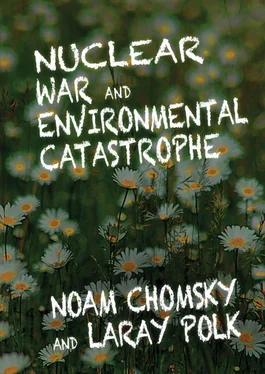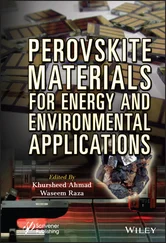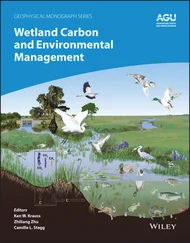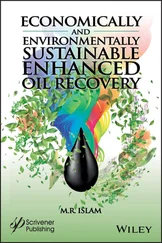See John Tirman, ed., The Militarization of High Technology (Cambridge, MA: Ballinger, 1984); Nick Turse, The Complex: How the Military Invades Our Everyday Lives, 1st ed. (New York: Metropolitan Books, 2008).
The cofounder of Raytheon, Vannevar Bush, joined MIT’s Electrical Engineering Department in 1919, eventually serving as dean and vice president. During World War II, he was the chief administrator of the Manhattan Project and served as director of the OSRD, a department he helped initiate during the Roosevelt administration. Bush is credited with codifying the relationship between federally funded science, industry, and the military (i.e., the military-industrial complex). For the blueprint, see Science, The Endless Frontier: A Report to the President by Vannevar Bush (Washington, DC: Government Printing Office, 1945). For biographical insight, see Richard Rhodes, The Making of the Atomic Bomb (New York: Simon & Schuster, 1988), 336. On Raytheon and ISN, see note 11, chap. 2.
India amended its patent law to comply with the WTO Agreement on TRIPS in 2005, though legal battles over medicine patents continue into the present, most notably with Novartis, a Swiss pharmaceutical company with subsidiaries in India. According to Section 3(d) of the Indian Patent Act, “incremental or frivolous innovation is non-patentable.” NGOs believe a weakening of Section 3(d) could jeopardize India’s capacity to provide affordable generics to the developing world. Rachel Marusak Hermann, “Novartis before India’s Supreme Court: What’s Really at Stake?,” Intellectual Property Watch (IP-Watch.org), March 2, 2012.
“The government already spends more than $30 billion a year on bio-medical research through the national institutes of health. It would make much more sense to directly finance the research by the industry, eliminate the tax breaks and let all drugs be sold as generics at Wal-Mart for $4 per prescription.” Dean Baker, “Start with the Drug Companies,” Room for Debate (online forum), New York Times , April 13, 2011. See also “Financing Drug Research: What Are the Issues?,” Center for Economic and Policy Research (CERP), September 2004.
According to Michael J. Graetz, one of the greatest challenges to implementing a successful US energy policy is the “tendency for Congress to place geographic considerations above technological and economic prospects…. Members of Congress frequently have insisted on their own personal priorities, directing funds to individual projects, locations, or institutions by earmarking projects…. Clearly, many members of Congress have been more concerned with rewarding well-connected constituents and contributors than advancing science or promising technologies.” “Energy Policy: Past or Prologue?,” Daedalus 141 (Spring 2012), 35.
Problems with the United States’ “innovation ecosystem” were pointed out by Pres. Bush’s scientific advisors in 2004: “Design, product development, and process evolution all benefit from proximity to manufacturing, so that new ideas can be tested and discussed with those working ‘on the ground.’ …The interdependency between new research and manufacturing becomes vitally important, and those linkages are provided by people.” President’s Council of Advisors on Science and Technology, “Sustaining the Nation’s Innovation Ecosystems,” January 2004. The Bureau of Labor Statistics projects US employment in manufacturing will continue to trend as an area of rapid decline. Richard Henderson, “Industry Employment and Output Projections to 2020,” Monthly Labor Review , January 2012.
Pew’s analysis found that among religious groups, the unaffiliated are the most likely to say the earth is warming due to human activities; white evangelical Protestants are the most likely to say there is no solid evidence the earth is warming or that humans play a role; and black Protestants are the least likely to deny global warming is occurring. Another Pew study found views on climate change break along discernible party lines. Pew Research Center (PewResearch.org), “Faith in Global Warming: Religious Groups’ Views on Earth Warming Evidence,” April 16, 2009; “Wide Partisan Divide over Global Warming: Few Tea Party Republicans See Evidence,” October 27, 2010. See also, Aaron M. McCright and Riley E. Dunlap, “The Politicization of Climate Change and Polarization in the American Public’s Views of Global Warming, 2001–2010,” Sociological Quarterly 52 (Spring 2011): 155–94, doi:10.1111/j.1533-8525.2011.01198.x.
See profiles of Chesapeake Energy’s Aubrey McClendon and Texas billionaire Harold Simmons. Jeff Goodell, “The Big Fracking Bubble: The Scam behind Aubrey McClendon’s Gas Boom,” Rolling Stone , March 15, 2012; Monica Langley, “Texas Billionaire Doles Out Election’s Biggest Checks,” Wall Street Journal , March 23, 2012.
During the 2008 presidential campaign John McCain promised to address climate change. By 2011, the majority of Republican presidential candidates denied its existence. Tim Phillips, president of the Koch-funded Americans for Prosperity, chalks it up to the Tea Party and other groups: “If you look at where the situation was three years ago and where it is today, there’s been a dramatic turnaround…. If you [Republican candidates] … buy into green energy or you play footsie on this issue, you do so at your political peril. The vast majority of people who are involved in the nominating process—the conventions and the primaries—are suspect of the science. And that’s our influence. Groups like Americans for Prosperity have done it.” Coral Davenport, “Heads in the Sand,” National Journal , December 1, 2011. Americans for Prosperity Director Nansen Malin attended the Saul Alinsky Institute in the early ’70s and is writing a book for conservatives on community organizing; she ranks number five on #TCOT (“Top Conservatives on Twitter”). See also FreedomWorks of America’s use of Alinsky’s Rules for Radicals , Brad Knickerbocker, “Who Is Saul Alinsky, and Why Is Newt Gingrich So Obsessed with Him?,” Christian Science Monitor , January 28, 2012.
Max Weber, The Protestant Ethic and the Spirit of Capitalism , trans. Talcott Parsons (1904–5; repr., London: Routledge, 1992), 58.
In 1834 workers at the Lowell Mills factory, referred to as “factory girls,” went on strike upon learning wages would be reduced by 15 percent. According to the Boston Transcript : “The number [of strikers] soon increased to nearly 800. A procession was formed, and they marched about the town, to the amusement of a mob of idlers and boys, … We are told that one of the leaders mounted a stump and made a flaming Mary Wollstonecraft speech on the rights of women and the iniquities of the ‘monied aristocracy,’ which produced a powerful effect on her auditors, and they determined to ‘have their way if they died for it.’” Newspaper excerpt from historian Catherine Lavender’s website, “Liberty Rhetoric” and Nineteenth-Century American Women , s.v. “Uses of Liberty Rhetoric among Lowell Mill Girls.” See also title page of the workers’ paper, the Lowell Offering , s.v. “Lives of Lowell Mill Girls.” For more on the labor press, see Chomsky on MisEducation , ed. Donaldo Macedo (Lanham, MD: Rowman & Littlefield, 2004), chap. 2.
Читать дальше












